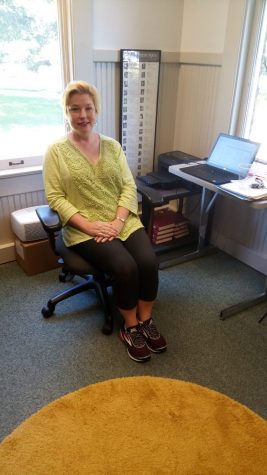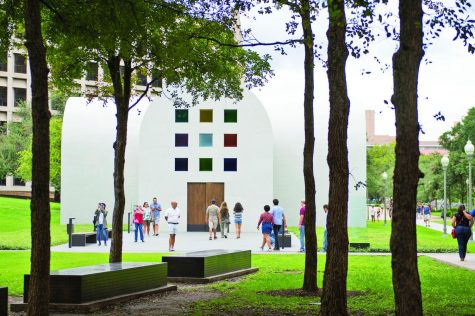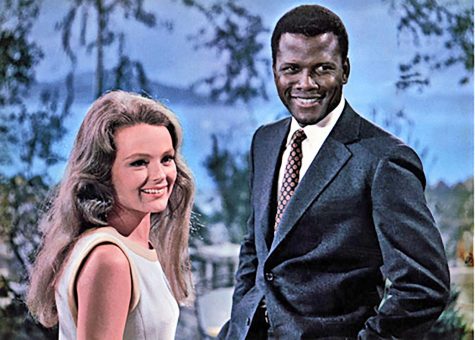American Dilemmas pilot sections focus on service
For years, students at St. Edward’s University have associated the American Dilemmas course with a 15-page research paper on a social justice issue.
However, for the past four semesters St. Edward’s has been piloting alternative sections of CULF 2321 that have not required completion of the typical paper.
The new sections are part of the university’s effort to reassess American Dilemmas and keep the Cultural Foundations curriculum current, modern and tuned into the student body, said Todd Onderdonk, assistant professor of University Programs.
Onderdonk said the pilot sections still accomplish the same learning objectives but do so through other activities and assignments, including debates, civic engagement, service learning and other creative ideas proposed by experienced professors at St. Edward’s.
One major goal of American Dilemmas has been to prepare students to write their Capstone paper in their senior year, said Onderdonk.
Established fully in 1991, the Cultural Foundations curriculum provides students the opportunity accurately demonstrate their knowledge and abilities through a wide variety of courses based on the university’s mission statement, said Marianne Hopper, dean of University Programs.
American Dilemmas uses economics, sociology and political science to analyze current social problems in a research paper. The paper offers valuable exposure to research, extended writing and social problems that students might not have had up until that point, Onderdonk said.
In recent years, professors in University Programs noticed the academic caliber and preparedness of St. Edward’s students was increasing, said Susan Loughran, one of the first professors to teach Capstone.
Many students didn’t seem to need additional preparation for Capstone, and the department began to ask whether the American Dilemmas paper was still necessary.
There was also the occasional negative student evaluation of the course and complaints among the students that the paper was repetitive, Onderdonk said.
University Programs was also striving to incorporate civic engagement and a commitment to service in its general education requirements, Loughran said.
“We looked closely at the mission statement and that’s when we had an ‘aha!’ moment,” Loughran said. “We realized an ethical person needs to take action on an ethical decision. It’s not enough to just decide.”
Timothy Braun, an adjunct faculty member who is currently teaching a pilot CULF 2321 section, said it is also important to find a balance between research and interaction when making decisions about social issues.
While University Programs acknowledged that many students do a lot of service, the department considered making service an academic requirement, Loughran said.
Onderdonk said the Association of American Colleges and Universities was a helpful resource in this endeavor, by providing guidelines and scholarship on creating a liberal arts curriculum based on civic engagement.
The department researched other small liberal arts institutions whose mission statements emphasized social justice, like LeMoyne University, Belmont University and St. Joseph’s College of Indiana, among others.
In the fall of 2008, University Programs began to pilot American Dilemmas sections largely designed by individual professors and faculty.
The new sections allow St. Edward’s students to give and get something from the course, while still teaching the fundamental concepts of American Dilemmas: research, solution and moral reasoning.
Loughran, Braun, Adjunct Faculty Russell Moses and Adjunct Faculty Amy Wright are teaching the four CULF 2321 sections with a civic engagement emphasis this semester.
Students in Loughran’s class volunteer once a week at Covington Middle School as tutors and aides. They are keeping journals of their perspectives and observations about the social issues they see in the school and the American education system.
At the end of the course, they will research and analyze a social issue they saw at Covington and present as a paper and to the class, Loughran said.
Madeline White, a sophomore in Loughran’s class, said she enrolled in the course mostly to avoid the 15-page paper, but is really enjoying the course’s new focus.
“I’m actually getting to see the effects of these issues first-hand within [Covington],” she said. “It’s more real, and adds something else on a whole other level to learning. It’s definitely something that should be done more [in education].”
In Braun’s course, students pick a non-profit organization from a list he compiled and volunteer with the organization a minimum of six times over the semester. Students will give an oral presentation and write a reflection about their experience, Braun said.
The department is curious about the outcome of the pilot sections.
“I’m hoping students will be able to identity one or two aspects that they can then explore not only in Capstone, but in their lives,” Braun said.
This semester offers University Programs the first opportunity to assess the success of the pilot sections, because the students who took the first pilot course in Fall 2008 are currently enrolled in their Capstone courses. University Programs can monitor their progress to determine how well they transition to Capstone without the 15-page paper. Based on the results, University Programs will decide if they want to permanently expand and incorporate the pilot sections into the curriculum, Onderdonk said.
While the pilot sections are evaluated, many American Dilemma’s sections still require the 15-page paper. Onderdonk said it is essential for faculty to explain the necessity behind the paper and why it is taught.
Despite any lingering criticism, Onderdonk said he believes in the paper.
“The paper is all about Catholic social teaching and encouraging students to make moral ethical decisions,” he said.
According to student course evaluations thus far, the pilot courses have been popular, Onderdonk said.
In addition to American Dilemmas, the American Experience courses are also being reformed and modernized, said Onderdonk, who is also the American Experience coordinator. These courses are currently being planned for Fall 2011.
“We want to balance the need to give students a consistent intellectual experience in these courses while giving instructors freedom to use their own creativity and training,” Onderdonk said.





